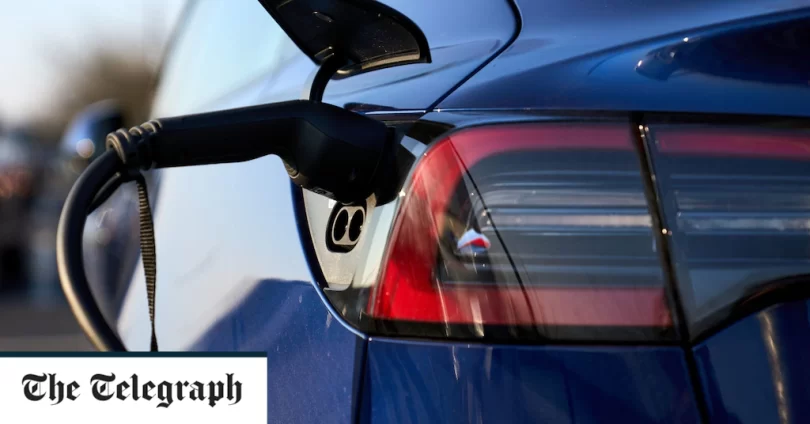[ad_1]
Self-imposed green investment rules in the City of London risk holding back the adoption of electric vehicles and battery technology, the industry has warned.
Benedikt Sobotka, co-chairman of the Global Battery Alliance, said so-called ESG rules, which encourage investors to put money into green and socially responsible projects, are starving new mining projects of funds because they are perceived as dirty under current rules.
That is choking off the supply of key metals needed for batteries, sending prices soaring. Lithium hydroxide prices shot up last year, quadrupling as demand outstripped supply.
Mr Sobotka estimates that 60 new lithium mines will be needed in the next 10 years to keep up with demand for metals from battery producers. An additional 40 new cobalt mines will also be required, a rate of investment that has “never been done in history”, he said. New mining prospects typically take five to seven years to set up.
“If we want to transfer just the passenger vehicles to electric vehicles globally, we’ll have to mine more material than there’s ever been mined in the history of the world,” said Mr Sobotka, who is also chief executive of Eurasian Resources Group.
Despite the demand, many pension funds and other large investors are wary of backing mines in countries like Congo where materials like cobalt can be found because of ESG rules, Mr Sobotka said.
Most of the largest investment funds now have rules governing what they can invest in, rating companies on ethical and governance grounds and demanding that they provide some social good.
“You have to deploy a lot of capital in some complicated countries,” he added. “And on the other hand, your pension funds and your large investment funds — it’s great to have an ESG score card for your equity investments. That’s great, but a lot of the mining companies actually don’t make it on that list.”
While so-called ESG-compliant pension funds will happily invest in the shares of companies like electric car maker Tesla, they are shunning the mines which supply the company with its raw materials, said Mr Sobotka.
Car makers and investors need to face the fact that the metals used in batteries for cars, smartphones and other consumer goods cannot be mined in G7 countries, he said.
If investors do not find a way to invest, the speed of the rollout of electric vehicles is under threat.
While the transition from petrol and diesel to battery-powered vehicles is speeding up, only 10pc of cars sold around the globe last year were electric, according to the International Energy Agency.
The investment case for lithium, cobalt and other metals are rising up the ESG agenda, Mr Sobotka said, but “it doesn’t actually translate into more investment from the capital markets”. The value of the entire industry is dwarfed by the valuation of companies like Tesla.
The Global Battery Alliance is a 110-member group seeking to set standards in showing the providence of mined materials. It wants to create a battery passport, which allows materials to be traced and shows buyers how much carbon has been expended in their making.
“It’s very important that as we build out this massive supply chain, that this is done in a sustainable and traceable fashion,” said Mr Sobotka.
“We’re trying to support the green energy transition with ESG compliant materials,” he said. “But ESG means mines take longer to build, and they’re more expensive to build. So that irony, I think we haven’t solved as an industry yet.”
[ad_2]
Source link








